Coffee is undoubtedly the world’s most popular beverage. It is a good-to-go drink that every person of any age enjoys drinking daily. Coffee includes caffeine that helps boost our energy, concentration and keeps us awake.
When it comes to coffee lovers who are also soon-to-be mothers, quitting coffee is indeed a big and difficult challenge.
Many clinical studies suggest regular coffee that contains a high amount of caffeine is not a suitable option for pregnant women. Pregnant women need to reduce caffeine in the coffee they drink.
But is it true that women cannot drink coffee while pregnant?
The short answer is No, it is not! Pregnant women can still drink coffee, and that coffee is decaf coffee. Definitely, it is the best choice for pregnant ladies who can’t go on a day without coffee.
Decaf coffee is actually not different from ordinary coffee, except for the fact that a big portion of caffeine has been eliminated to a very small amount. Despite the low amount of caffeine in decaf coffee, some people still question if it is safe to drink during pregnancy.
To uncover your curiosity, let’s find out everything you need to know about decaf coffee and pregnancy in this article.
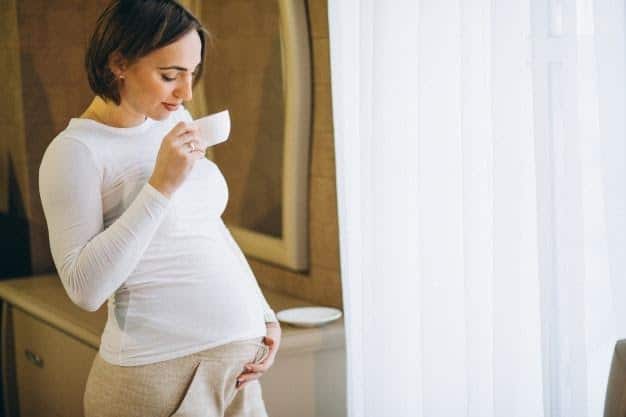
Contents
What Is Decaf Coffee?

Decaf coffee stands for Decaffeinated Coffee. It has 97% or more of the caffeine in coffee beans removed. Typically, a general cup of coffee has around 95 mg of caffeine. Meanwhile, a standard cup of decaffeinated coffee has around 2 mg of caffeine.
Decaf coffee, like standard coffee, starts out as green, unroasted beans. To extract the caffeine, the hard beans are warmed and immersed in liquid in one of four ways. It is done by using water alone, a combination of water and solvents added directly or indirectly, or water and supercritical carbon dioxide.
Coffee beans are washed until the caffeine has been absorbed, then the solvent is removed. Using carbon dioxide or a charcoal filter, a technique known as the swiss water method, caffeine may also be extracted.
Before they’re roasted and ground, the beans are decaffeinated. In addition to caffeine, the nutritional value of decaf coffee should be approximately the same as regular coffee.
Apart from these decaffeination processes, this coffee is different from the regular one in terms of taste and smell. Decaf coffee tastes flatter and has more watery. The color might also change based on the decaffeination method used.
The truth is decaffeinated coffee is perceived by coffee connoisseurs as unnatural. Normally, it tastes and smells a bit milder and lighter than ordinary coffee. So, to those who are prone to the bitter scent of regular coffee, they will find it less satisfying.
How Much Caffeine Is In Decaf Coffee?

Despite a huge portion of caffeine elimination, decaf coffee is not totally caffeine-free. Meanwhile, a moderate amount of caffeine remains, and this means it is not completely safe for some pregnant ladies to drink.
On average, an 8oz (236ml) cup of decaf coffee contains caffeine up to 7mg. Whereas a cup of standard coffee contains 70-140mg, and it varies in coffee type, cup size, and brewing method.
Research suggests that the amount of caffeine could increase in 1-2 cups of normal coffee by drinking 5-10 cups of decaf coffee. On the other hand, it is worth remembering that there might be higher levels of caffeine in some commercial decaffeinated coffee.
One research reported that a commercial decaffeinated coffee contained up to nearly 14mg of caffeine per 16oz (475ml) serving.
To understand more details about decaf coffee, check out Coffee Truth About How Much Caffeine in Decaf Coffee.
Can I Drink Decaf Coffee While Pregnant?
We all know what coffee is, but how much do you know about the caffeine in coffee?
Most commonly present in tea, coffee, and cacao plants, caffeine is a natural stimulant. It works by helping you stay alert, stimulating the function of the nervous system, and delaying the occurrence of tiredness.
Studies also show that caffeine has some significant benefits such as memory enhancement, focus improvement, and even risk reduction for diseases such as Alzheimer’s and liver cancer.
Nevertheless, caffeine works differently when it comes to pregnancy.
In pregnancy, it is broken down more slowly and travels into the baby’s placenta. During the second trimester of your pregnancy, it takes almost twice the time to remove caffeine from your body. Meanwhile consuming coffee during the third trimester of pregnancy takes almost three times to do so.
Although your body can handle the amount of caffeine you feed, your baby may not. In the later stages of pregnancy, any amount of caffeine can also lead to changes in the sleep cycle or normal movement cycle of your fetus.
There is still no clear explanation regarding the pregnancy complications caused by high caffeine intake. However, there are studies that have linked excessive caffeine intake during pregnancy with miscarriage, low birth weight, growth restriction, and obesity during childhood.
In addition to these adverse impacts, high blood pressure, anxiety, rapid heartbeat, dizziness, abdominal pain, and diarrhea are other bunch of harmful side effects of caffeine intake while you’re conceiving.
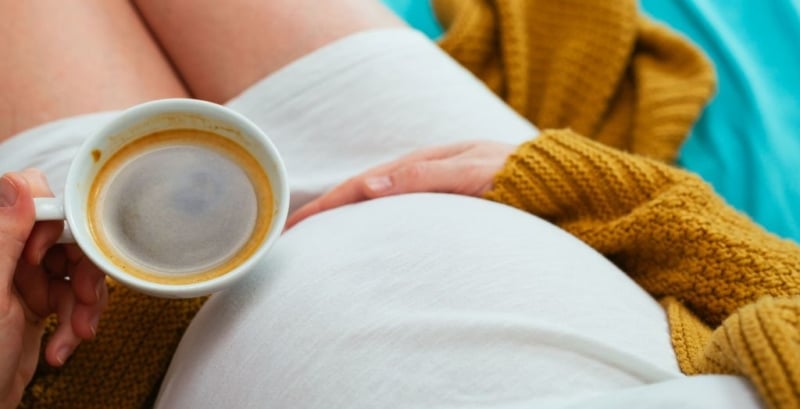
Until this day, there is no exact evidence that can prove the relationship of caffeine to negative pregnancy consequences. The effects of caffeine might also vary between individuals, therefore not everyone encounters the same side effects and impacts.
The recent recommendations from the American College of Obstetricians and Gynecologists (ACOG) and other experts suggest that consuming up to 200mg of caffeine a day is appropriate for expectant mothers. This amount of caffeine equals 1½ 8oz cups of coffee or one 12oz cup of coffee.
According to ACOG, moderate intake of caffeine (just under 200 mg a day) seems not to be a key factor contributing to miscarriage or premature births.
Experts recommend restricting the average coffee consumption to about 2 cups (475 ml) each day. On top of that, there is another research claiming it is possibly safe to consume less than 300mg of caffeine for pregnant women.
Is It Safe To Drink Decaf While Pregnant?
There are no clear statements, proof, or official guidelines that show the exact relationship between decaf coffee and pregnancy. Despite being a safe coffee option for expectant women, decaf coffee’s safety for pregnancy is still in question.
The fact that there is such a small amount of caffeine in decaf coffee, it is safe enough for expectant mothers to drink it in the most moderate amount. At the same time, the brands, the process used, and the type of bean, the amount of caffeine remaining in decaf coffee can also vary significantly.
A lot of studies remain unresolved about decaf coffee in pregnancy and its link to miscarriage and restricted growth. Consequently, pregnant women should either avoid consuming it or drink it in moderation during pregnancy.
Alexandra Chaston, head nutritionist at UAE-based hotel The Retreat, The Palm Dubai, has said that she would not suggest stopping cold turkey for those who are big coffee drinkers, as you are likely to get uncomfortable withdrawal symptoms.
Instead, she would recommend slowly trying to wean yourself off the caffeine, reducing a cup per day, and replacing a decaf or herbal tea or hot water with honey and lemon for your coffee in order to gradually come off caffeine in around weeks.
Why Pregnant Women Should Choose Decaf Coffee Over Regular Coffee?
Drinking decaffeinated coffee when pregnant is the number one best choice for our expectant mothers who are the coffee addicts out there.
No, we are not promoting decaf coffee as the best and the healthiest drink for pregnant women.
What we are just trying to inform our soon-to-be mums to feel less concerned about their coffee choice. While they are conceiving, they do not need to stop consuming anything that they once enjoyed.
The main thing here is to motivate pregnant ladies to cut down on their coffee consumption. Say no to regular or strong coffee, but yes to consuming decaf coffee instead.
According to the NHS and ACOG, women should really limit the amount of caffeine they drink to 200mg a day if they are pregnant. It is the equivalent of one cup of regular coffee or 2 cups of brewed coffee.
During pregnancy, drinking coffee with more than 200mg of caffeine is absolutely not safe at all. Keep at the most moderate level so that both you and your developing fetus will not encounter potential risks in the future.
A study by Clean Label Project claimed that some brands come with methylene chloride, a toxic chemical substance that is extremely harmful to pregnant women and the fetus.
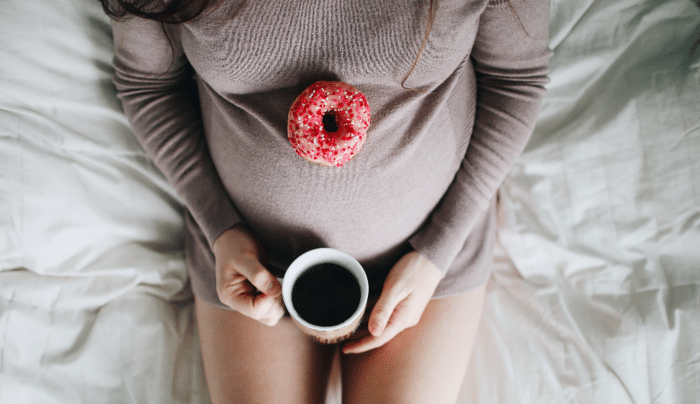
4 Best Types of Decaf Coffee For Pregnancy
1. Decaf Ground Coffee
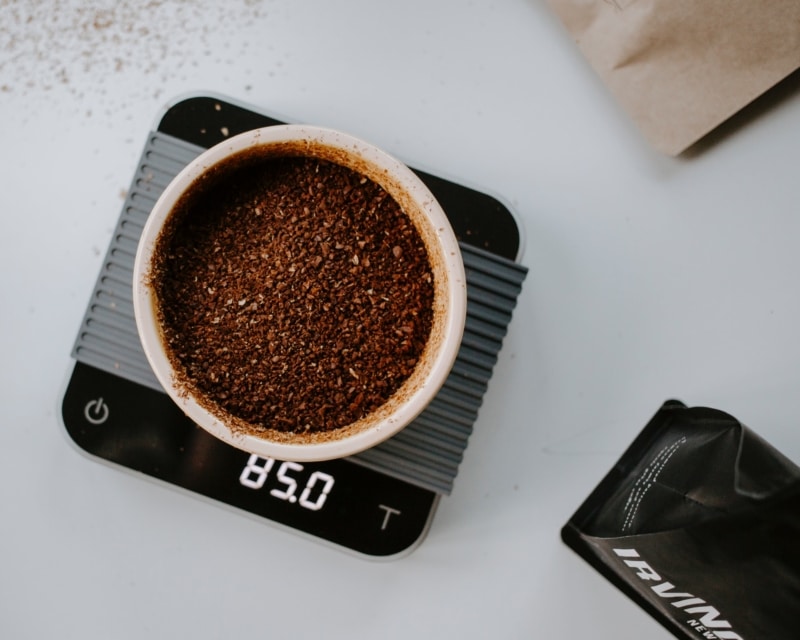
- Allegro Coffee: Decaffeinated Organic French Roast
- Community Coffee: Decaffeinated Café Special Dark Roast
- Folgers: Decaffeinated Classic Roast
- Illy Caffe: Decaf Espresso Medium Roast
- Tim Hortons: Decaffeinated Medium Roast
2. Decaf Instant Coffee
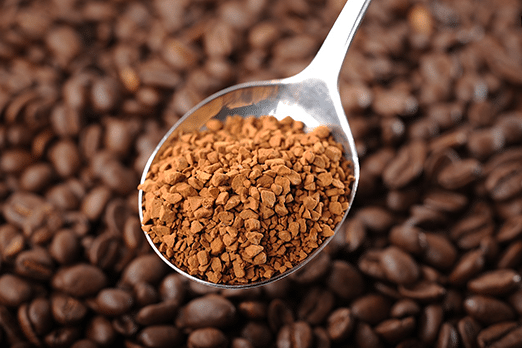
- Nescafe: Decaffeinated House Blend Light Roast
- República: Organic Decaf Arabica Medium Roast
- Maxwell House: Decaf Original Medium Roast
- Starbucks: VIA Instant Decaf Italian Dark Roast
3. Decaf K-Cup Coffee
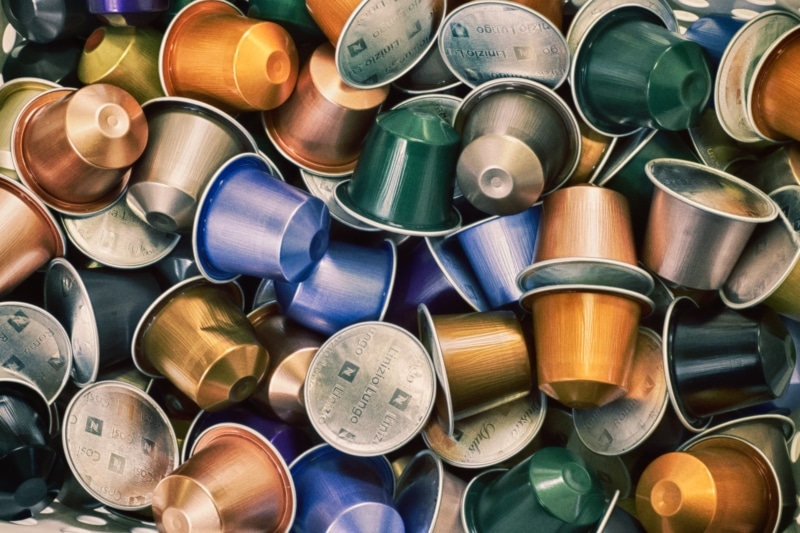
- Peet’s Coffee: K-Cup Decaf House Blend Dark Roast
- Starbucks: Cafe Verona K-Cup Coffee
- Community Coffee Decaf Café Special Medium-Dark Roast
- Maud’s Decaf Dark Roast
- The Original Donut Shop Decaf Medium Roast
4. Decaf Whole Bean Coffee
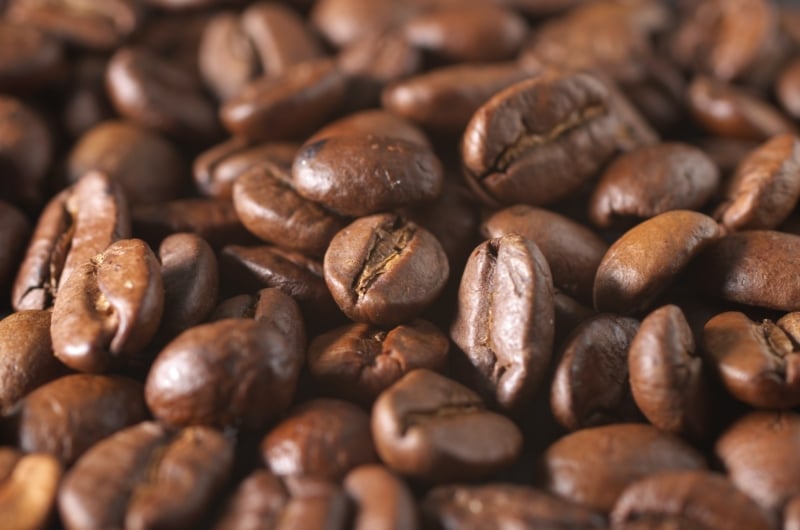
- Kicking Horse Coffee: Decaf Dark Roast
- The ganic Coffee Co: Gorilla Decaf Medium Light Roast
- AmazonFresh: Decaf Colombia Medium Roast
- Swiss Water Process: Decaf Whole Bean Coffee
- Eight O’Clock: The Original Decaf Medium Roast
After all, always be mindful of the amount of caffeine in certain products and make sure to double-check it before you buy. Check out the list of the best decaf coffee comparison here.
Key Takeaways
We understand how hard it is to stop your coffee craving, especially if you are a heavy coffee drinker. You cannot go on a day without your favorite coffee brand or flavor.
However, a little one is fighting to survive in your tummy! Take this as a school summer break because, after your successful delivery, you can drink as much as you desire. Therefore, decaf coffee is the best substitute for regular coffee you’ve got so far.
To reduce the risk of miscarriage, child obesity, low birth weight, and growth restriction, pregnant ladies should not consume over 200 mg of caffeine per day. Actually, there is no official guideline of caffeine limitation for pregnant women. However, under 200 mg of caffeine intake, each day will most likely cause them little to no health risks.
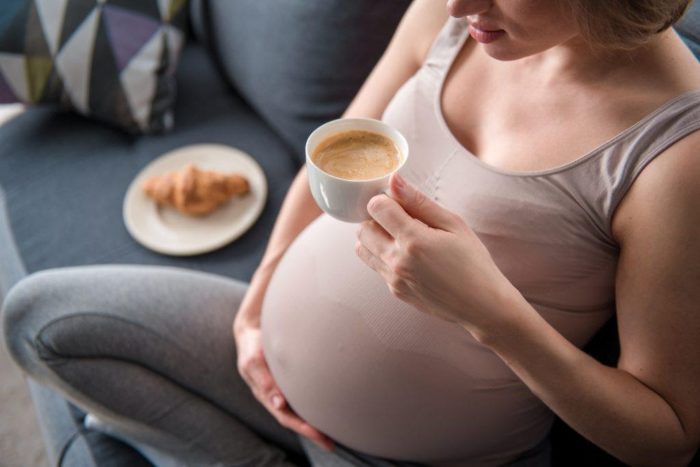
Most importantly, always keep in mind that not all decaf coffee chemical is completely toxic-free. Some certain brands contain methylene chloride which is very hazardous to pregnant women and their fetuses’ heath.
Always check the amount of caffeine and the other ingredients in coffee to avoid potential health in the future.
Last but not least, you don’t need to stop your coffee consumption too quickly. Instead, do it slowly by cutting down the amount of caffeine intake every day. Another effective method is to drink herbal tea or hot water with honey and lemon. Otherwise, you can try one of these coffee alternative drinks.
Now, let’s go one step above iced coffee, how about Dalgona Coffee in Decaf Version?
To learn more about how coffee affects breastfeeding, find out here.
In this video, Julia Wilde at Seeker will explain to you “How Coffee is Decaffeinated?
References
- Decaf vs Regular Coffee: What Is the Difference? | Dial Up the Coffee
- Is Decaf Coffee Good or Bad? | Healthline | Adda Bjarnadottir
- Caffeine Intake During Pregnancy | American Pregnancy Association
- All About Decaffeinated Coffee | NCA
- Caffeine in pregnancy: Why even decaf coffee could harm your baby | BabyandChild | Tabitha Barda
- How much coffee can I drink when I’m pregnant? Is Decaf OK for pregnant women? | Decadent Decaf Coffee Company



